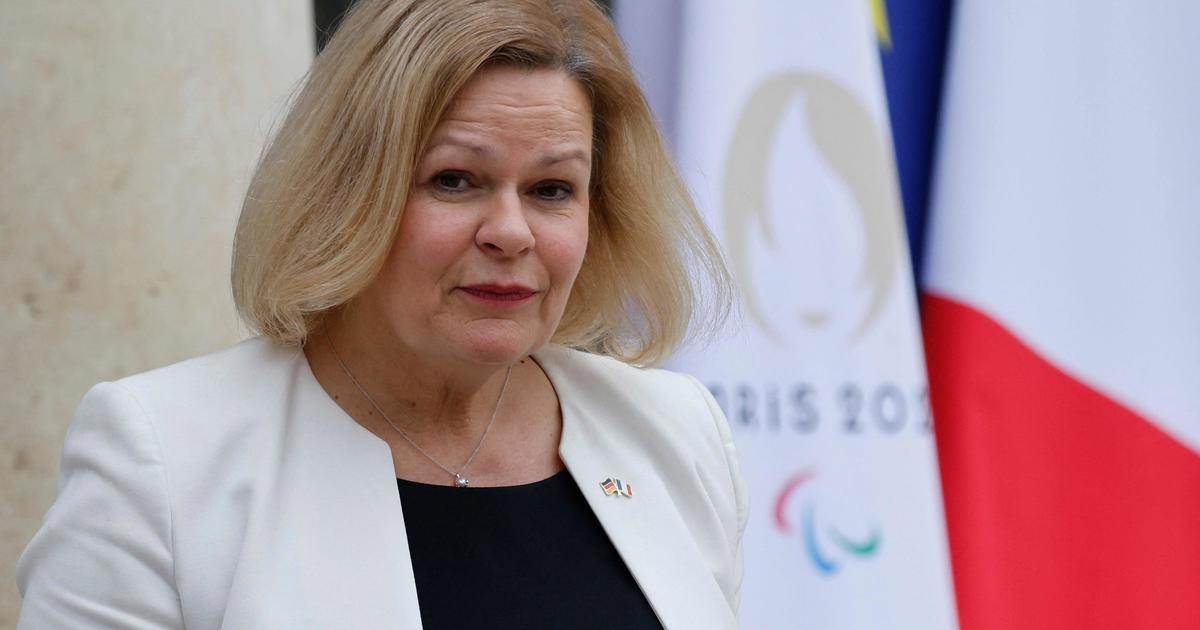Icon: enlarge
Mesut Özil is no longer needed at Arsenal FC.
How so?
Photo:
Richard Calver / imago images / ZUMA Press
"The situation has not changed," coach Mikel Arteta had repeated throughout the summer when reporters inquired week after week about the puzzling lack of consideration for Mesut Özil.
The story has still not been properly explained in north London, but at least its absurd outcome is certain: the most technically gifted German footballer of his generation will continue to be paid until the beginning of June not to play football at Arsenal FC.
Mesut Özil's final dismantling became official earlier this week when the Gunners failed to nominate him for the 25-man roster in the Premier League.
The world champion was "disappointed" and complained about "lack of loyalty", to which Arteta replied that his decision was made "with a clear conscience".
He tried everything to get the best out of the playmaker and gave him a "very fair" chance.
The fact that Özil could not use this can ultimately be blamed on him, Arteta: "I failed as a coach."
The Spaniard's elegiac tone lent the affair a deliberately tragic note, just as if Özil's premature retirement in the gunners' dress was an inevitable misfortune.
The elegant, but sometimes also phlegmatic ball passer, 32, is simply no longer able or willing to play for Arsenal, according to Arteta's version.
In Özil's camp you see it differently.
As former coach Arsène Wenger recently confirmed publicly, the player has always trained well and has done nothing in terms of attitude and fitness, they say;
the reasons for the banishment to the stands are primarily of a non-sporting nature.
The dispute over money
According to the player's environment, three things came together that turned the club against him in total: In December, Özil criticized the persecution of the Uyghurs in China in an Instagram message, which caused significant unease among the employer: China is an important market for the globally operating club.
At that time, Arteta, who took over at Arsenal shortly after the affair at the end of December 2019, was still with him.
Özil played ten league games from the start under the Spaniard until March and showed quite acceptable performances.
During the Corona break, however, Özil refused to agree to a wage waiver of 12.5 percent, referring to the unexplained purpose of the money saved and ultimately being right with his concerns: Arsenal laid off 55 employees in the fall, including the long-time actor of Gunnersaurus club mascot.
Since Arteta had made calls to the players to promote the salary cuts, Özil's "no" was tantamount to losing face for the coach.
Perhaps the player's commitment would also have caused problems with cohesion in the cabin.
After the restart of the league in July, Arteta firmly emphasized that Özil's absence had nothing to do with the issue of money, and club circles reported a back injury.
Meanwhile, the player declared himself ready for action via Twitter ("I am ready"), which was not conducive to the collaboration.
Icon: enlarge
No place in the sun: Mesut Özil has not played a game for Arsenal since March 2020
Photo: Andrew Matthews / NMC Pool / imago images / PA Images
When the former national player announced two weeks ago that he wanted to pay the salary for the man in the dinosaur costume, the club was once again anything but happy.
Özil had perhaps won the PR battle with this maneuver, many supporters are with him.
But after that there was no going back into the team.
If you believe Özil and his camp, he was ultimately punished for his humanitarian sentiment and steadfastness in the wage dispute.
But looking back, the beginning of the end of his active football time at the Emirates began on January 31, 2018.
On that day, the Gelsenkirchen native extended his contract with Arsenal by three years until 2021, and the supporters celebrated the signature as a sign that their club had at least a promising future despite an increasingly depressing present.
One of the last real top-class players on a team that had shrunk to a better Europa League squad under Arsène Wenger in the 21st century would stay with the club and become the central figure in an overdue rebuilding.
That was the hope in North London.
Özil's game for time
But Wenger's last major official act before his involuntary departure the following May soon proved to be a huge mortgage.
The renewed missed qualification for the Champions League reduced the budget for the renovation work at the Emirates Stadium.
In addition, the new trainer Unai Emery found it difficult to manage the change with the existing staff and some perspective players.
When the Spaniard used the team's best-paid professional increasingly sparsely, Özil sensed calculus: Did Emery deliberately dismiss him on behalf of the club management in order to force a move because Arsenal could no longer afford his contract, which is worth over 20 million a year?
Emery repeatedly opposed this interpretation.
"Tactical reasons" alone are decisive, he emphasized.
Özil's fragile elegance does not fit into the system of his team, which is more focused on pressing and defensive work, especially not in away games.
In the summer of 2019, the Gunners tried to sell or borrow Özil.
But the world champion was not interested.
He was playing for time.
In contrast to the less respected coach in the dressing room, Arsenal couldn't fire him so easily.
Icon: enlarge
Mesut Özil's last game for the German national team: a 0-2 win against South Korea at the 2018 World Cup. He then resigned
Photo: Ina Fassbender / dpa
In fact, Emery had to abdicate in November of last year due to unsuccessfulness.
Özil's former teammate Mikel Arteta took over (after a transition period under temporary coach Freddie Ljungberg) and promptly opened the door back to the team for the game designer.
A happy ending was looming.
But then came Corona and a late summer break, during which the clammy club would have been all too happy to give him up.
You can hear Özil saying goodbye.
But Özil said again that he wanted to fulfill his contract (until June 2021).
From a purely financial point of view, he emerges as a winner from the dispute.
But the bottom line is, after eight years in London, there is also an only partially fulfilled career, which rose to the top very early on and then became more and more entangled in the undergrowth unfamiliar to football.
The disembarkation from Arsenal FC is the continuation of the decline of one of the best preparers European football has ever produced.
It began with the affair about the joint photo with the Turkish ruler Tayyip Recep Erdogan in May 2018, which ultimately resulted in the noisy resignation of the 92-time German national player after the disastrous World Cup in Russia.
At that time, Özil could seem like a displaced person, even if he himself was by no means innocent of the cause due to his silence.
In London, too, his time ends noisily and controversially.
And nobody gets away with it unscathed.
Mesut Özil's career is not over yet.
But one thing is already certain: His talent deserved a lot more.
Icon: The mirror









